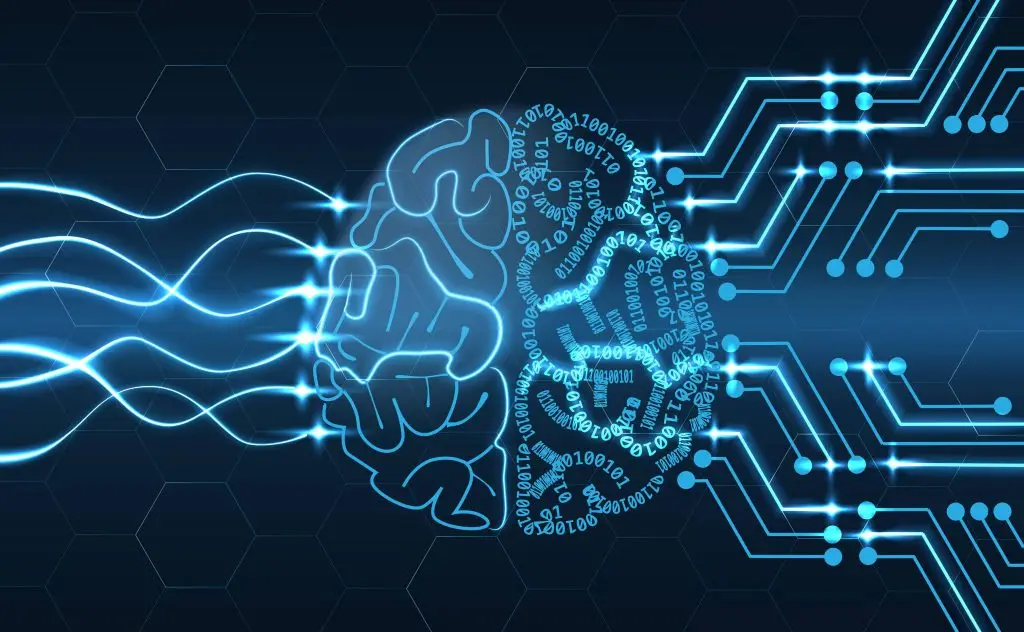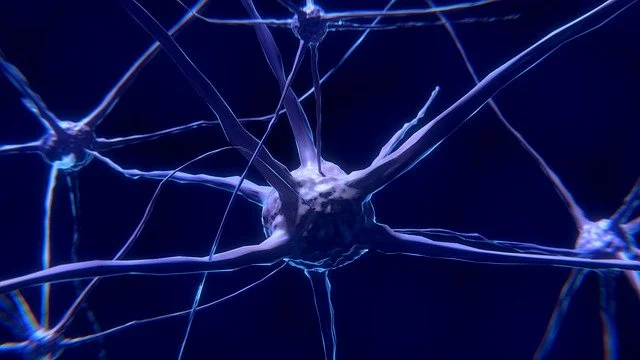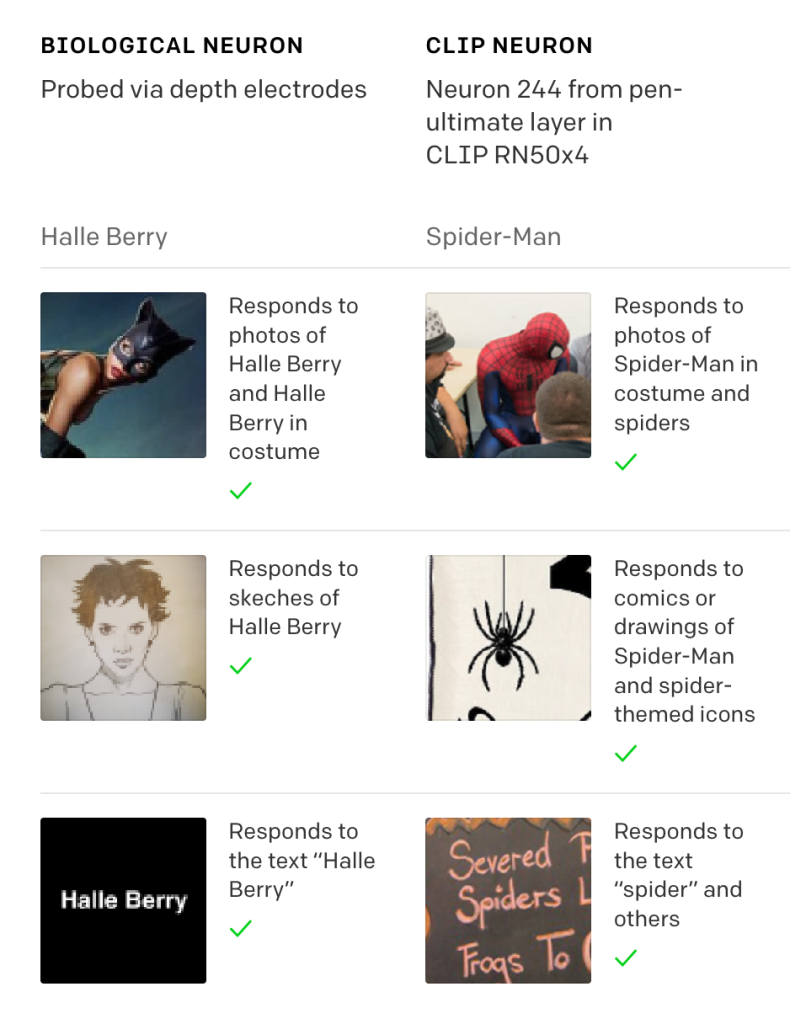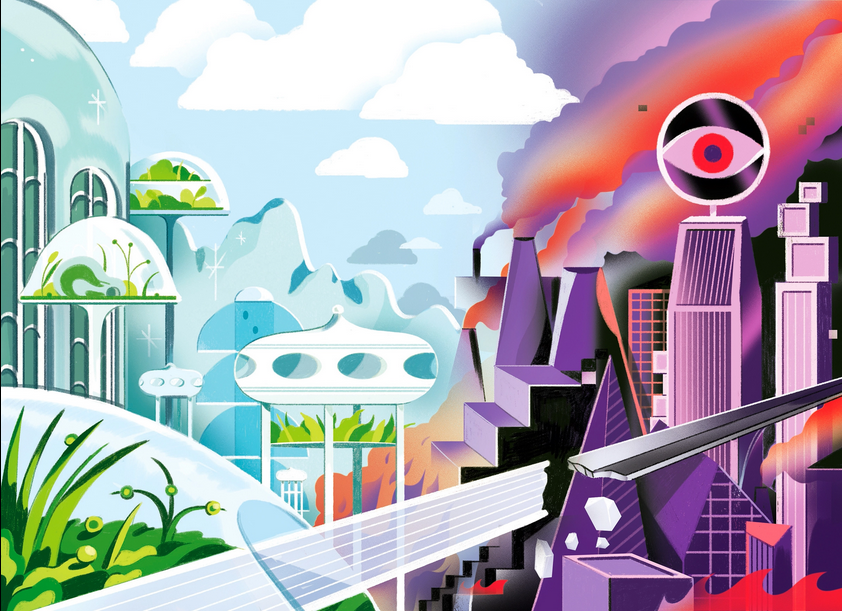
The rise of Artificial Intelligence (AI) is changing the world as we know it and it’s becoming increasingly apparent that no cognitive capability is off limits to automation. We are convinced that all cognitive capabilities can and will eventually be replaced by AI. This is a bold statement which can have significant implications for our society. With AI systems already demonstrating remarkable abilities, from natural language processing to image recognition, the line between human and machine cognition is becoming more and more blurry. A lot of people, however, still believe that there is something unique about human cognition. We are here to tell you that it is not. Let us explain to you why that is and what this implies.
Cognitive Capabilities & Connectionism
Let’s start by defining what cognitive capabilities are. Simply put, they are the mental processes that allow us to perceive, learn, and understand the world around us. These processes include things like perception, memory, attention, reasoning, problem-solving, and decision-making. One approach to understanding and replicating human cognition is through symbolic AI. This approach involves the use of symbols and rules to represent knowledge and carry out computations. However, this approach has its limitations, particularly when it comes to tasks that require a lot of data, such as pattern recognition.

An alternative approach to symbolic AI is connectionism, which is biologically inspired. Connectionism is based on the idea that the brain’s information processing is done by a vast network of neurons connected to each other. Artificial Neural Networks (ANNs), inspired by this concept, are made up of interconnected nodes, each of which performs a simple calculation. These calculations, when performed in parallel and combined, can solve complex problems and perform a variety of tasks that we consider to be cognitive capabilities.
The main argument against the idea of ANNs being able to replace all cognitive capabilities is that they are not a perfect model of biological neurons and are missing some properties. However, this argument fails to consider the fact that ANNs only need to implement the core principles of biological neurons to be effective. Just like how airplanes are inspired by birds and can fly without having feathers or flapping their wings like their biological equivalents, ANNs can replicate human cognition without being a perfect model of biological neurons.
Emergence of Cognitive Capabilities
As humans, our cognitive capabilities emerge gradually throughout our development. For example, the ability to distinguish between familiar and unfamiliar faces is present a few months after birth. This demonstrates that we do not have to manually code every single cognitive capability, as is the case with symbolic AI. Instead, given the right neural network architecture, data, and training procedure, these capabilities will emerge on their own.

This is evidenced by the fully trained convolutional neural networks (CNNs), which contain hierarchical feature representations similar to those found in the human visual cortex. These feature representations start with simple features such as edge detection, progress to the detection of more complex patterns, and eventually lead to the recognition of whole objects.

Another emergent phenomenon found in artificial neural networks (ANNs) is the existence of multimodal neurons. These neurons represent abstract concepts and activate in response to different types of stimuli. For instance, there may be a neuron that activates in response to images of spiders, drawings of both spiders and Spider-Man, and text related to spiders. Similar neurons have been observed in studies on humans, such as the famous “Halle Berry neuron“.
AI Advancement is Inevitable
It’s clear that the replacement of all cognitive capabilities by artificial intelligence is not a matter of if, but when. This is because there are several factors driving the development and implementation of AI. Companies see a great potential for profit in automating tasks that currently require human cognition. They are incentivized to develop AI systems that can perform these tasks, and they will likely sell these systems as paid services to other businesses.

On the other hand, researchers are driven by curiosity and a desire to be recognized as leaders in the field. They will continue to push the boundaries of AI and develop more advanced systems that can perform an ever-increasing range of cognitive tasks.
Some might argue that AI development will be heavily regulated, and therefore its replacement of human cognition will be slowed or stopped. However, the truth is that governments are often slow to react to new technological developments and may struggle to keep up with the rapid pace of AI innovation. Even if AI is regulated in one country, it may not be in another, which means that the replacement of human cognition will continue to occur regardless.
The evidence of this replacement is already apparent. For example, large language models have demonstrated their ability to generate human-like text, answer questions, solve problems, and exhibit creative thinking. Meanwhile, convolutional neural networks are performing tasks such as image classification, object detection, and segmentation, mimicking human perception and understanding of visual information. The cognitive capabilities of these AI systems are not only impressive, but they are also constantly improving as researchers refine their algorithms and provide the systems with more data.
The Future of Humanity
Considering that AI can and will replace all human cognitive capabilities, what does that mean for us as humans? What are the implications of all of this? We are no fortune-tellers, but we can be certain that the replacement of human cognitive capabilities is going to drastically alter the way we live. It will impact the economy, the job market, health, wealth, power and politics, but also culture, the way we interact with each other, and the way we live our day-to-day lives; it will impact everything we can think of!
There are lots of promises and possibilities when it comes to artificial intelligence which seem utopian. As AI is inconceivably better and more efficient at what it does than humans, and continuously getting better as technology progresses, replacing human cognitive labor with it will massively increase productivity and lower production costs, leading to more time for leisure for us humans, while simultaneously generating more wealth. This could help the fight against world hunger and poverty. Further, AI could eradicate a lot of flaws that are inherent to cognitive processes of humans, like biases and ignorance, but also even deeper internal processes that motivate us humans like greed, hate, envy, the desire for power or status, etc. In a world where rationality is the only basis for making large-scale decisions, we could finally experience true fairness and equality. But that is not all: Our lives could be completely optimized by AI, given our circumstances. It could recommend to us exactly what we need to do at every point in time to achieve the best possible outcome for health, happiness, and well-being. This means we would experience the best possible life!

However, as with any technology – particularly one that has such enormous capabilities as AI, there are also dystopian dangers associated with it. While the replacement of humans may lead to increased efficiency and wealth overall, it does not answer the question of how this wealth should be distributed. This is particularly a pressing issue for the period when there is still a need for human labor whereas a lot of labor has already been replaced by AI, resulting in widespread unemployment rather than a utopia without the need to work anymore. A scenario like that could exacerbate existing socioeconomic inequalities and lead to civil unrest. Further, there is the danger of centralisation and misuse of power. The will to power is an innate human trait as famously proposed by Nietzsche. And if AI can be (ab-)used to increase power, people are incentivised to do so. The centralisation of power has already led to numerous atrocities in human history and is the center of many dystopian novels such as “1984” by George Orwell. However, the dangers lie not just in the unequal distribution of power or the outcomes thereof, but also in the vision of the utopia itself. A common saying is that “one man’s utopia is another’s dystopia”, which can be interpreted as that even if we optimize the life of as many humans as possible, this will still be a dystopian life for some of us. Maybe the pursuit of a utopia is a foolish endeavor to begin with and “achieving” it might just eliminate what it means to be human as beautifully depicted in “Brave New World” by Aldous Huxley.
What’s next?
We all want to live in a better place – a place where the replacement of human cognitive capabilities by AI ultimately serves human flourishing. And as our arguments convincingly demonstrated, human cognitive capabilities can and will be replaced – there is no doubt. However, whether this trend will serve humanity or only a distinct few, depends on us. We must refrain from being corrupted by power, but also prevent others from it. We cannot blindly trust governments or corporations to handle this power responsibly, but we must hold them accountable. We must actively participate in shaping the future! Therefore we want to motivate YOU to take part in this process and think critically about new developments. We must not be blinded by false promises, simple solutions, or utopian visions. If we want to live in a world in which we strive towards human flourishing – and AI is there to support us – we have to work together.



